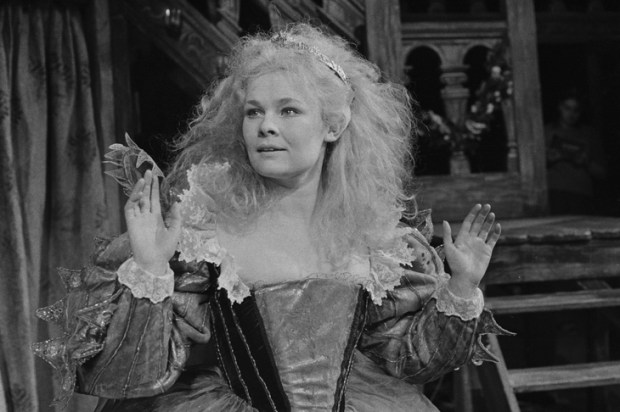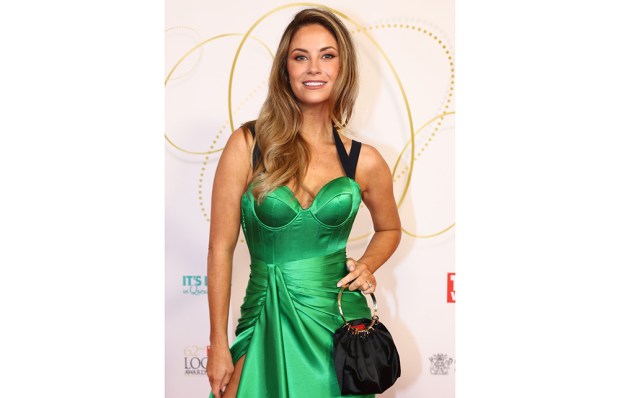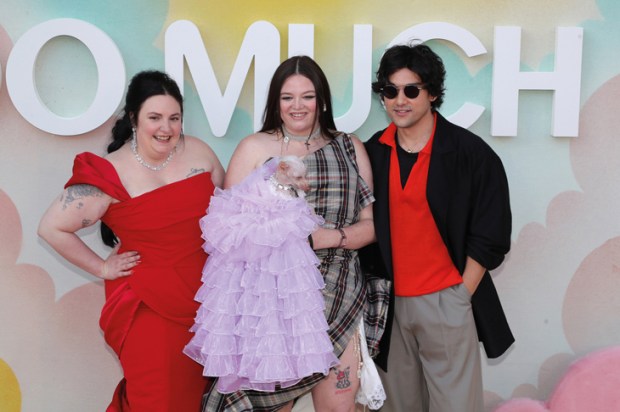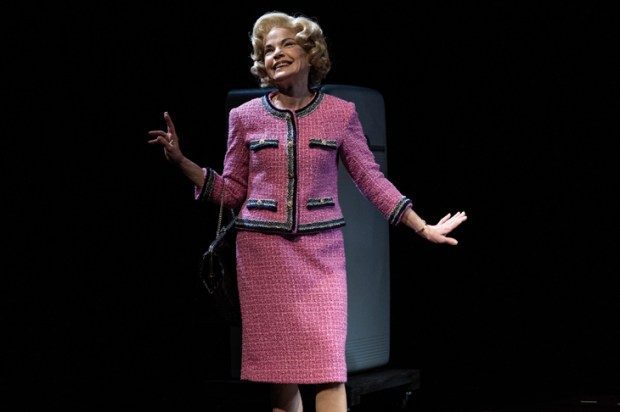Noni Hazlehurst’s performance in Daniel Keene’s The Mother is a thing of wonder and terror, overwhelming in its power and grace and wrenching in the intensity of the ghastly experiences it depicts with such lack of sentiment and with the blackest kind of humour captured so brilliantly and so mercilessly.
Matthew Scholten’s production dates way back to 2016 but the play has all the pertinence in the world as we watch Noni Hazlehurst confront us with the ravaged face of one of the wretched of the Earth which would be too much to contemplate were it not for the spectacular technical skill and sheer range of feeling which are exhibited with no false note so that the upshot is weirdly exhilarating even though everything that has happened to this homeless women is at the edge of being too terrible for human contemplation.
Sometimes she gets to wash her face in a holy water stoup, the water is too cold but the wash is something. She recalls telling her father the news that he’s dying and then he does die that very night. How’s that for a joke: would he have lasted longer if she had lied to him?
She sometimes gets a bit of shelter, always temporary, in some home and feels the proximity of the morgue. Every day she wakes wondering if this is her last, every day she recollects the horror of Christian platitudes telling her she is nailed on the cross like Jesus and every time she scorns it and every time she recollects the crucifying quality that harrows her own soul. And the excruciation is something she cannot back away from. Early on there is the beautiful memory of a baby boy, then later we realise that this woman is called Mother because her pain is dreadful at how she acted and could do no other.
Technically the performance is a thing of majesty as Noni Hazlehurst hurls herself at Daniel Keene’s relentless indication of the unforgivable nature of what this woman suffers through every stumble and assault.
Hazlehurst’s voice is a rough-as-guts Aussie shriek which is at the same time full of flint and irony as it summons up the spectres of a world that has done its best to make her see herself as worthless even though the depth of feeling in her every plaint and wisecrack is a testament to how intimately we know the possibilities that have left this woman so bereft though the dramatic interplay between playwright, director and actor is magnificently co-ordinated.
We know with every cry, every stabbing moment of poignancy that everything in our civilisation commands our compassion for this lost soul and at the same time we shrink from the horror we are implicated in.
The dreamscape that underlines the pain is terrible – eyes that should be eyes of compassion look like cockroaches, everything is a parody of itself and as we hear the familiar names of inner-urban Melbourne, the Grace Darling or wherever, we know we are walking along some Via Dolorosa.
And if we want to change cultural barometers Noni Hazlehurst gives us a pulsating shimmering sense of what Aristotle might have meant when he said the elements of tragedy were those of pity and terror and that the most-ruined life on Earth is vibrant with the humanity which has been reviled by a world afraid to look, afraid to care.
This is a very brave piece of writing and a very grand piece of acting. At some level beyond any circle of the rhetoric of comfort we pray for the mercy that comes from the good and we believe in the grieving motherhood of this woman who could not help herself.
The Mother should be compulsory viewing for everyone who does not – and who does really? – feel complicit in what is done to the down-and-out.
And everyone who cares about the miracle of the theatre – the magic it can create in the presence of darkness – should see what Noni Hazlehurst can achieve under Matt Scholten’s empathic direction with Daniel Keene’s sense of the inscrutability of human pain.
Turning to lighter things it was interesting to see Peter Weir receive a lifetime award at the Venice Film Festival. How the world of Australian film changed when Weir made Picnic at Hanging Rock in 1975 and Australia became a place where schoolgirls could vanish into the mists of time. And there was a parallel magic – albeit a less ethereal one – in films like The Year of Living Dangerously with Mel Gibson, from the Christopher Koch novel, and then Gallipoli again with Mel Gibson but with a script by David Williamson which did justice to that terrible moment in a nation’s history.
After this, Peter Weir becomes an expert and versatile Hollywood director turning his hand to films as different as Dead Poets Society and Witness. Still, when he made Master and Commander from Patrick O’Brian’s sea story in a style reminiscent of Jane Austen, Russell Crowe’s Jack Aubrey has an Australian accent and the Oscar-winning cinematography was by our own Russell Boyd so that the whole venture came across as one of Peter Weir’s homages to the land of his birth.
It’s not a preoccupation of Simon Stone whose production of the Finnish opera Innocence at next year’s Adelaide Festival in the wake of Ruth Mackenzie’s sudden departure will be one of the highlights. Stone sometimes raises eyebrows with his ‘after Chekhov’ productions which sound very much like business-as-usual adaptations. Everyone from Trevor Nunn to John Gielgud fiddles with Chekhov’s language in order to get the magic of his idiom of the ordinary: Joanna Murray-Smith has been doing it recently for Sydney’s Ensemble Theatre.
But we should not underrate the force of Simon Stone’s identification with the original he tinkers with and then reproduces. A lot of people would love to see his production of Euripides’ Medea with Rose Byrne in the mighty and terrible role and her husband Bobby Cannavale as her Jason which was on at New York’s BAM in 2020.
And in the arena of ghastly subjects it’s fascinating that Justin Kurzel – the man who made that masterpiece Nitram which recapitulates the shadow of the horror of the Port Arthur massacre – is using British actors Nicholas Hoult and Jude Law for his new film The Order about white supremacy in 1980s America.
Got something to add? Join the discussion and comment below.
You might disagree with half of it, but you’ll enjoy reading all of it. Try your first month for free, then just $2 a week for the remainder of your first year.













